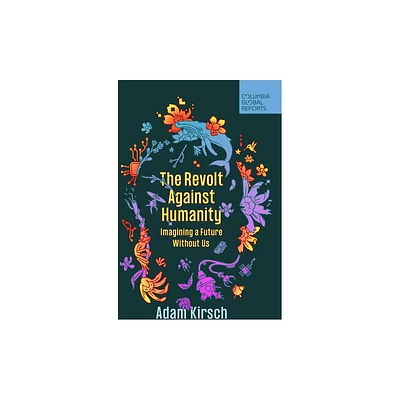Home
Revolt: The Worldwide Uprising Against Globalization
Loading Inventory...
Barnes and Noble
Revolt: The Worldwide Uprising Against Globalization
Current price: $44.99


Barnes and Noble
Revolt: The Worldwide Uprising Against Globalization
Current price: $44.99
Loading Inventory...
Size: Audio CD
*Product Information may vary - to confirm product availability, pricing, and additional information please contact Barnes and Noble
"A well-written and thought-provoking account of the current crisis of globalization. Not everyone will agree with Eyal's interpretation, but few will remain indifferent."
—Yuval Noah Harari, author of
Sapiens
An eye-opening examination of nationalism’s spread around the world as the promise of globalism wanes
Revolt
is an eloquent and provocative challenge to the prevailing wisdom about the rise of nationalism and populism. With a vibrant and informed voice, Nadav Eyal illustrates how modern globalization is not sustainable. He contends that the collapse of the current world order is not so much about the imbalance between technological achievement and social progress or the breakdown of liberal democracy as it is about a passion to upend and destroy power structures that have become hollow, corrupt. or simply unresponsive to urgent needs. Eyal illuminates the benign and malignant forces that have so rapidly transformed our economic, political, and cultural realities, shedding light not only on the economic and cultural revolution that has come to define our time but also on the counterrevolution waged by those it has marginalized and exploited.
With a mixture of journalistic narrative, penetrating vignettes, and original analysis,
shows that the left and right have much in common. Eyal tells stories of distressed Pennsylvania coal miners, anarchist communes on the outskirts of Athens, a Japanese town with collapsing fertility rates, neo-Nazis in Germany, and Syrian refugee families whom he accompanied from the shores of Greece to their destination in Germany. Into these reports from the present Eyal weaves lessons from the past, from the opium wars in China to colonialist Haiti to the Marshall Plan. With these historical ties, he shows that the revolts’ roots have always been deep and strong, and that rather than seeing current uprisings as part of a passing phenomenon, we should recognize that revolt is the new status quo.
—Yuval Noah Harari, author of
Sapiens
An eye-opening examination of nationalism’s spread around the world as the promise of globalism wanes
Revolt
is an eloquent and provocative challenge to the prevailing wisdom about the rise of nationalism and populism. With a vibrant and informed voice, Nadav Eyal illustrates how modern globalization is not sustainable. He contends that the collapse of the current world order is not so much about the imbalance between technological achievement and social progress or the breakdown of liberal democracy as it is about a passion to upend and destroy power structures that have become hollow, corrupt. or simply unresponsive to urgent needs. Eyal illuminates the benign and malignant forces that have so rapidly transformed our economic, political, and cultural realities, shedding light not only on the economic and cultural revolution that has come to define our time but also on the counterrevolution waged by those it has marginalized and exploited.
With a mixture of journalistic narrative, penetrating vignettes, and original analysis,
shows that the left and right have much in common. Eyal tells stories of distressed Pennsylvania coal miners, anarchist communes on the outskirts of Athens, a Japanese town with collapsing fertility rates, neo-Nazis in Germany, and Syrian refugee families whom he accompanied from the shores of Greece to their destination in Germany. Into these reports from the present Eyal weaves lessons from the past, from the opium wars in China to colonialist Haiti to the Marshall Plan. With these historical ties, he shows that the revolts’ roots have always been deep and strong, and that rather than seeing current uprisings as part of a passing phenomenon, we should recognize that revolt is the new status quo.


















